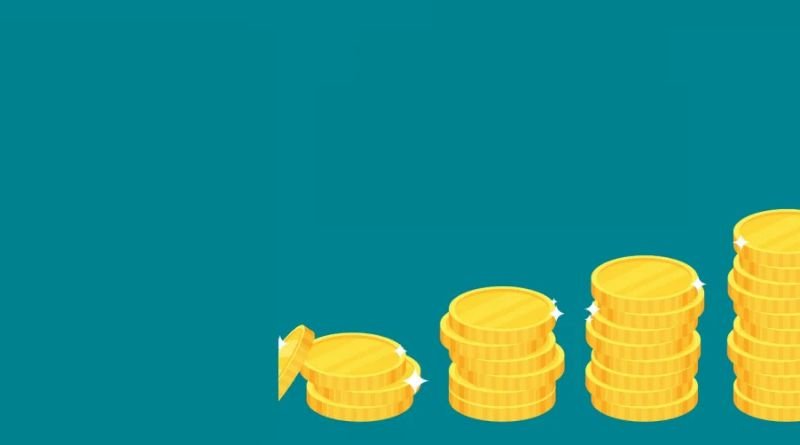Credit cards have become a common financial tool in today’s world, offering convenience, security, and various rewards. From everyday purchases to emergency situations, credit cards can help manage spending, build credit, and even earn cash back or points. However, many people still have questions about how credit cards work and how to use them responsibly. In this article, we’ll explore the basics of credit cards, how they function, and tips for making the most of your credit card usage.
Table of Contents
What Are Credit Cards?
A credit card is a financial tool issued by banks, credit unions, or other financial institutions that allows consumers to borrow funds to make purchases or pay for services. Essentially, when you use a credit card, you’re borrowing money that you agree to pay back, either in full or over time, usually with interest. Credit cards offer a line of credit, meaning you’re given a set credit limit, and you can spend up to that limit.
Unlike debit cards, which withdraw funds directly from your bank account, credit cards give you the flexibility to borrow money. If you don’t pay the balance in full by the due date, interest charges will apply, often at a high annual percentage rate (APR).
How Do Credit Cards Work?
When you make a purchase using a credit card, you’re essentially borrowing money from the card issuer. Here’s a breakdown of how it works:
- Credit Limit: Each credit card comes with a predetermined credit limit, which is the maximum amount you can borrow. Your credit limit depends on factors like your credit score, income, and credit history.
- Purchases: When you make a purchase, the card issuer pays the merchant on your behalf. You are then responsible for repaying the issuer.
- Billing Cycle: Credit cards operate on a billing cycle, typically lasting a month. At the end of the billing cycle, you will receive a statement showing your total purchases, the minimum payment due, and the due date for repayment.
- Minimum Payment: You are required to make at least the minimum payment each month, but paying only the minimum will result in interest charges and will take longer to pay off the balance.
- Interest Rates: If you don’t pay your balance in full, interest will accrue on the remaining balance. Interest is typically charged on a daily basis, so paying off your credit card balance as soon as possible is crucial to avoid accumulating interest.
- Credit Score Impact: How you use your credit card affects your credit score. Consistently paying on time and keeping your balance low relative to your credit limit will positively impact your credit score.
Benefits of Using Credit Cards
- Convenience: Credit cards provide an easy and quick way to make purchases, both online and in-store. They eliminate the need to carry cash and offer global acceptance.
- Building Credit: Regularly using a credit card and making timely payments can help build your credit history and improve your credit score. A good credit score can make it easier to qualify for loans, mortgages, and even better interest rates.
- Rewards and Cash Back: Many credit cards offer rewards programs, where you can earn points, miles, or cashback for every dollar spent. These rewards can be redeemed for travel, merchandise, or statement credits.
- Purchase Protection: Some credit cards offer protection for purchases, including extended warranties, fraud protection, and return protection. If your item is damaged or stolen, certain cards may reimburse you.
- Emergency Fund: In case of an emergency, a credit card can provide a financial buffer, allowing you to make necessary purchases even if you don’t have the funds readily available.
Types of Credit Cards
There are several different types of credit cards, each offering unique features and benefits:
- Standard Credit Cards: These are basic credit cards without additional rewards or perks. They often come with a lower interest rate.
- Rewards Credit Cards: These cards offer points, miles, or cashback for purchases. Some cards specialize in certain categories, such as travel, dining, or groceries.
- Secured Credit Cards: Secured cards require a deposit as collateral and are often used by individuals with limited or poor credit history to help build or rebuild credit.
- Student Credit Cards: Designed for students, these cards have lower credit limits and are a good starting point for building credit.
- Business Credit Cards: Tailored for businesses, these cards offer business-specific rewards and features, including the ability to track business expenses.
Tips for Using Credit Cards Responsibly
- Pay Your Bill On Time: Always try to pay your bill in full by the due date to avoid late fees and interest charges. If you can’t pay the full amount, at least make the minimum payment.
- Keep Your Credit Utilization Low: Aim to use no more than 30% of your available credit. High utilization can negatively impact your credit score.
- Watch Out for Fees: Be mindful of fees such as annual fees, foreign transaction fees, and cash advance fees. These can add up quickly if you’re not careful.
- Avoid Unnecessary Debt: While credit cards provide convenience, they can also lead to debt if not used wisely. Try not to charge purchases that you can’t afford to pay off right away.
- Review Your Statements: Regularly check your credit card statements to ensure all charges are accurate and that no fraudulent activity has occurred.
FAQs About Credit Cards
1. What is the best way to avoid paying interest on a credit card?
To avoid paying interest, always pay your balance in full by the due date. If you can’t pay it all at once, try to pay as much as possible to reduce the amount that accrues interest.
2. What happens if I miss a credit card payment?
Missing a payment can result in late fees, higher interest rates, and a negative impact on your credit score. It’s important to make at least the minimum payment to avoid these penalties.
3. How do credit card rewards work?
Credit card rewards allow you to earn points, miles, or cashback on your purchases. These rewards can be redeemed for travel, merchandise, gift cards, or statement credits, depending on the card.
4. How do I know which credit card is best for me?
Consider your spending habits and financial goals. If you travel often, a rewards card with travel perks might be a good fit. If you’re looking to build credit, a secured or student card might be a good option.
5. Can I increase my credit limit?
Many credit card issuers allow you to request a credit limit increase after demonstrating responsible use, such as paying bills on time and maintaining a low balance. Be sure to check with your card issuer for their specific requirements.
Conclusion
Credit cards offer a wealth of benefits, from the ability to make purchases with ease to the opportunity to build your credit and earn rewards. However, it’s important to use them responsibly to avoid debt and protect your financial health. By understanding how credit cards work and following smart financial habits, you can make the most of your credit card while maintaining a strong credit score and financial well-being.



